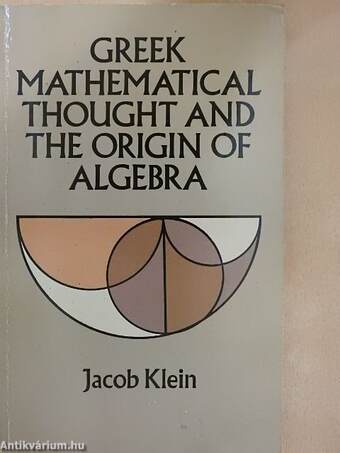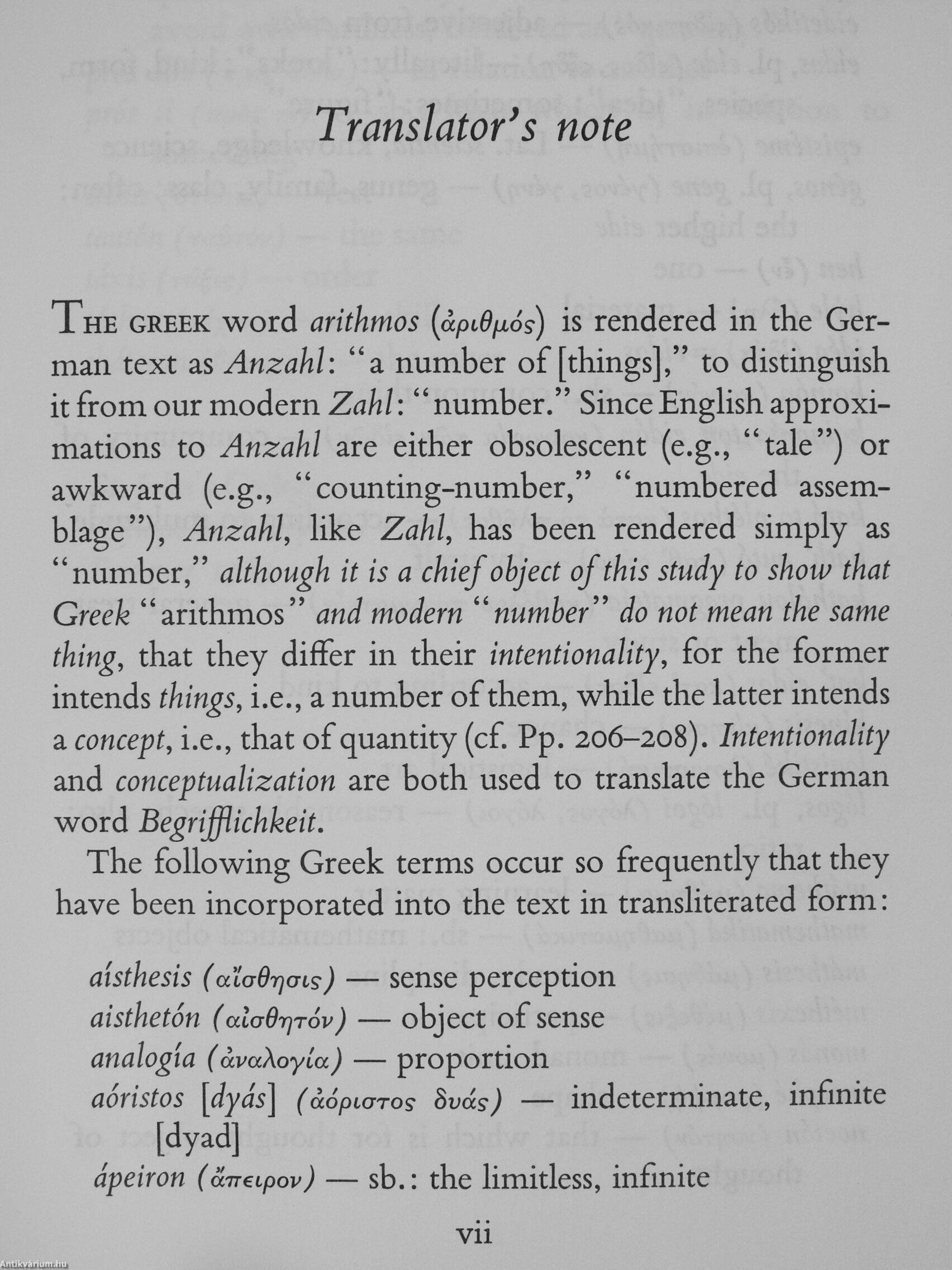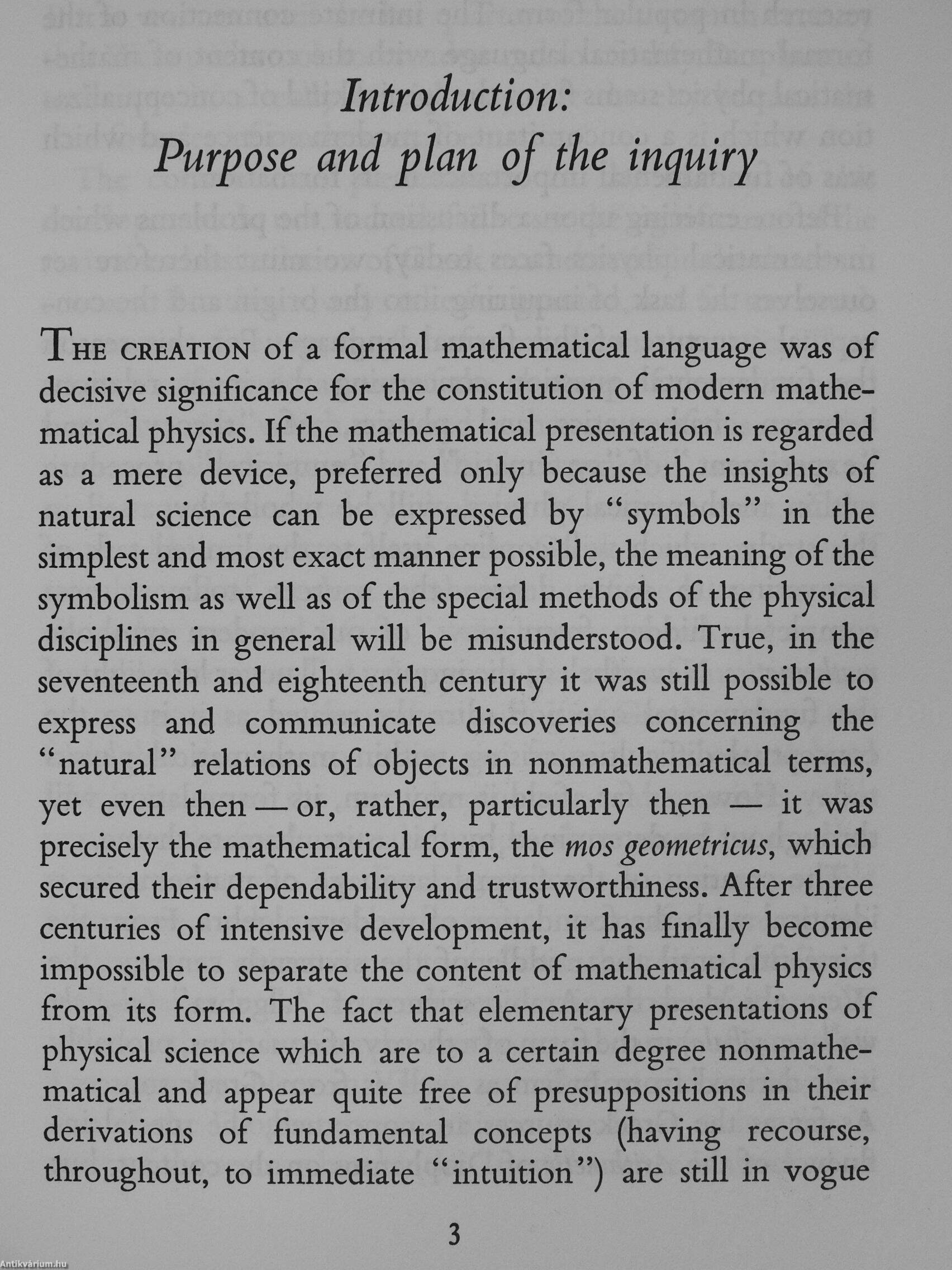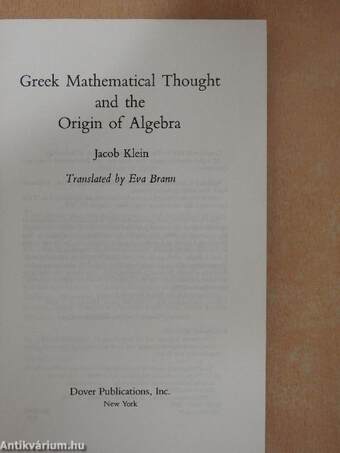1.067.017
kiadvánnyal nyújtjuk Magyarország legnagyobb antikvár könyv-kínálatát

VISSZA
A TETEJÉRE
JAVASLATOKÉszre-
vételek
Greek Mathematical Thought and the Origin of Algebra
| Kiadó: | Dover Publications, Inc. |
|---|---|
| Kiadás helye: | New York |
| Kiadás éve: | |
| Kötés típusa: | Ragasztott papírkötés |
| Oldalszám: | 360 oldal |
| Sorozatcím: | |
| Kötetszám: | |
| Nyelv: | Angol |
| Méret: | 21 cm x 14 cm |
| ISBN: | 0-486-27289-3 |
naponta értesítjük a beérkező friss
kiadványokról
naponta értesítjük a beérkező friss
kiadványokról
Előszó
TovábbFülszöveg
GREEK MATHEMATICAL
THOUGHT AND THE ORIGIN OF ALGEBRA
Jacob Klein
The creation of a formal mathematical language was of decisive significance in the development of modern mathematical physics. Indeed, the creation of that formal language was identical with the foundation of modern algebra. From the thirteenth until the middle of the sixteenth century, the West absorbed the Arabic science of "algebra" {al-g' abr wa'l-mugabala) in the form of a theory of equations, probably itself derived from Indian as well as Greek sources. In particular, the influence of the Arithmetic of Diophantus on Arabic science, in turn passed to the West, was considerable. In the last quarter of century the French mathematician François Vieta (1540-1603) undertook to broaden and modify Diophantus' technique in a crucial way. In the author's view, Vieta thereby became the true founder of modern mathematics.
In this fascinating study. Prof. Klein investigates the revival and assimilation of Greek... Tovább
Fülszöveg
GREEK MATHEMATICAL
THOUGHT AND THE ORIGIN OF ALGEBRA
Jacob Klein
The creation of a formal mathematical language was of decisive significance in the development of modern mathematical physics. Indeed, the creation of that formal language was identical with the foundation of modern algebra. From the thirteenth until the middle of the sixteenth century, the West absorbed the Arabic science of "algebra" {al-g' abr wa'l-mugabala) in the form of a theory of equations, probably itself derived from Indian as well as Greek sources. In particular, the influence of the Arithmetic of Diophantus on Arabic science, in turn passed to the West, was considerable. In the last quarter of century the French mathematician François Vieta (1540-1603) undertook to broaden and modify Diophantus' technique in a crucial way. In the author's view, Vieta thereby became the true founder of modern mathematics.
In this fascinating study. Prof. Klein investigates the revival and assimilation of Greek mathematics in the sixteenth century from the specific standpoint of the conceptual transformation which occurred in the course of that assimilation. This fundamental change in the concept of number made possible modern science—in which the symbolic "form" of a mathematical statement is completely inseparable from its "content" of physical meaning. While establishing that modern numerical concepts did not flow directly from ancient ones, the author nevertheless illuminates the Greek concept of number and the genuine Greek achievement in the theory of number. This seminal work, reprinted here complete with a translation of Vieta's Introduction to the Analytical Art, is must reading for all students and professionals in the history of science and mathematics. Vissza
Témakörök
- Filozófia > Témaköre szerint > Filozófiatörténet > Tanulmányok
- Idegennyelv > Idegennyelvű könyvek > Angol > Természettudományok > Matematika
- Idegennyelv > Idegennyelvű könyvek > Angol > Filozófia > Témaköre szerint > Filozófiatörténet > Tanulmányok
- Természettudomány > Matematika > Algebra és számelmélet > Általában
- Természettudomány > Matematika > Idegennyelvű
- Természettudomány > Matematika > Története
- Filozófia > Témaköre szerint > Szakfilozófiák
- Idegennyelv > Idegennyelvű könyvek > Angol > Filozófia > Témaköre szerint > Szakfilozófiák
Jacob Klein
Jacob Klein műveinek az Antikvarium.hu-n kapható vagy előjegyezhető listáját itt tekintheti meg: Jacob Klein könyvek, művekMegvásárolható példányok
Nincs megvásárolható példány
A könyv összes megrendelhető példánya elfogyott. Ha kívánja, előjegyezheti a könyvet, és amint a könyv egy újabb példánya elérhető lesz, értesítjük.







